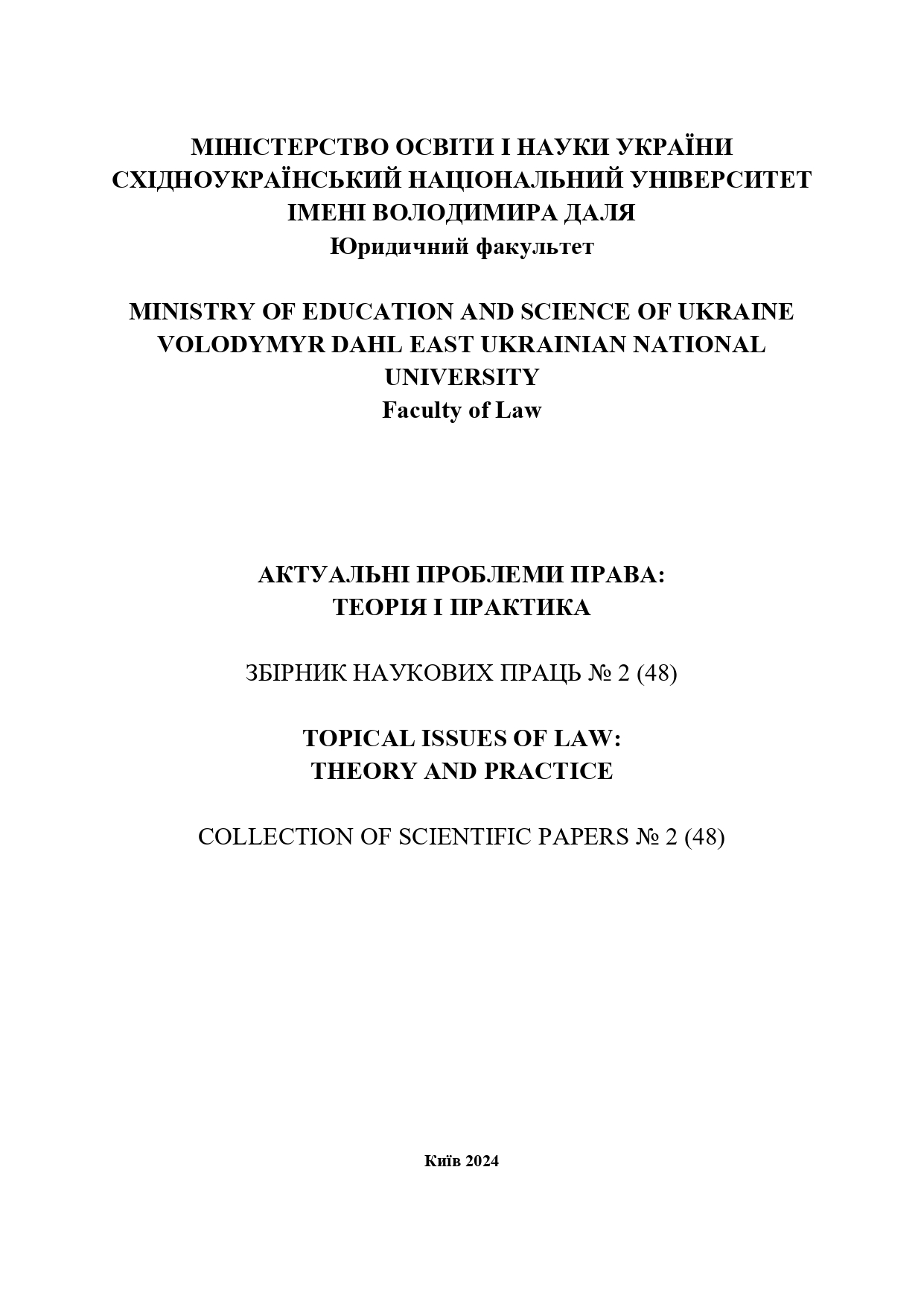STUDY OF THE CONCEPT OF “ENCOURAGEMENT” IN LABOR RELATIONS
DOI:
https://doi.org/10.33216/2218-5461/2024-48-2-23-32Abstract
Based on a comprehensive analysis of the
scientific achievements of researchers in psychology,
economics and law, the article examines the concept
of “ encouragement” for labor achievements and
compares it with the concepts of “motives”,
“incentives”, “reward”, which some scholars
consider synonymous, while others consider them to
be components of the concept of “encouragement”.
The current period of development of labor legislation
can be characterized as a period of transformational
changes. Labor law in the modern period is in the
circle of increased attention of legislators. In the
number of changes, additions and cancellations made
to labor legislation during the full-scale invasion,
today is the leader in the last decade. Changes have
been made to the institution of preoccupancy and
employment, employment contracts, working hours,
rest periods, and salaries. However, the institute of
labor discipline (with the exception of disciplinary
dismissals), including the issue of legal regulation of
incentives for labor achievements, has remained
virtually unchanged. This is the reason for the
relevance of the study.
The purpose of the article is to analyze the
concept of “encouragement” for labor achievements
in the modern period of development of labor
relations.
Pursuant to Article 143 of the Labor Code,
employees of enterprises, institutions and
organizations may be subject to any incentives
contained in the internal labor regulations approved
by the labor rules. In other words, the legislator has
completely placed the issue of incentives in the sphere
of local regulation. The Code outlined the types of
incentives and the procedure for their application very
superficially. The article offers the author's vision of
the concept of “incentives” and classification of types
of encouragement; by the level of legal regulation; by
the field of action; by the subject composition; by the
time of use; by the term of validity.
Lawyers have different views on the recognition
of incentives: 1) incentives as a form and measure of
legal approval of voluntary meritorious behavior, as
a result of which the subject receives a reward and has
favorable consequences; 2) incentives as an impetus
to the most efficient, productive work, which is
intended to distinguish the best employees, the best
labor collectives, which is applied on the basis of a
relatively free assessment of their labor merits, taking into account personal and public interests and in accordance with the procedure established by law.
Based on the study, it is possible to define incentives for labor achievements as public recognition of an employee's/team's merits (results of their activities and/or outstanding achievements) and a positive assessment used by the employer or the state in the forms provided by regulatory, local or individual acts (employment contract).
Keywords: encouragement, labor incentives, labor relations, employee, labor rights, employment contract, motives for labor activity.

